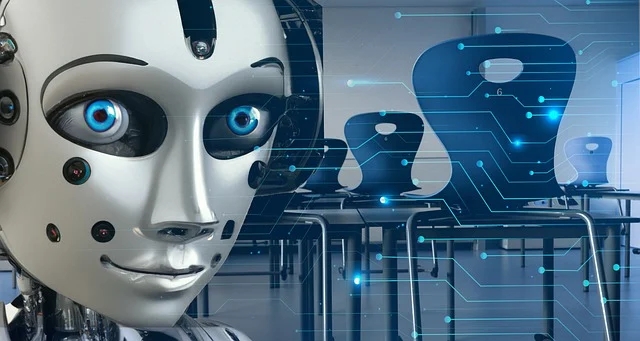In the Aethon Era, the age of rapid technological advancements, the question of whether robots will replace human beings by the year 2050 has been a topic of much debate and speculation. This article aims to shed light on this intriguing subject and debunk the common misconception that robots are set to replace humans entirely. Contrary to the alarmist views, it is imperative to understand that robots are tools created by humans to assist and enhance our lives, not to replace us.
The Helper, Not the Substitute
One of the key points to emphasize is that robots are designed and programmed to perform specific tasks efficiently. They excel in repetitive and dangerous tasks, such as assembly line work and bomb disposal, where precision and safety are paramount. These roles allow humans to focus on more creative, complex, and strategic endeavors.
Evolving Alongside Humans
Robots are continually evolving to complement human abilities rather than replace them. As technology advances, robots are becoming increasingly integrated into various industries, from healthcare to manufacturing. They assist doctors with surgeries, help with physical therapy, and even support astronauts in space missions. This symbiotic relationship between humans and robots highlights their collaborative nature.
Enhancing Efficiency and Productivity
Robots are a valuable asset in industries where efficiency and productivity are essential. They can work tirelessly without fatigue, leading to increased output and reduced costs. In agriculture, for example, robots are being employed to harvest crops, thus addressing the growing demand for food production due to the expanding human population.
The Continued Importance of Humans
The Human Touch
While robots excel in certain tasks, they lack the emotional intelligence, creativity, and empathy that humans possess. Fields like healthcare, counseling, and education require a human touch that cannot be replicated by machines. People seek comfort, compassion, and understanding from their fellow humans, making these professions irreplaceable.
Adaptability and Problem-Solving
Human beings are incredibly adaptable and possess problem-solving skills that are unmatched by machines. We can navigate complex, ever-changing situations, innovate, and respond to unforeseen challenges. These qualities are vital for progress and development in various industries and aspects of life.
Creative Expression
Art, literature, music, and other forms of creative expression are unique to humans. These endeavors are driven by our emotions, experiences, and imagination, making them distinctly human. Robots lack the capacity to create and appreciate art in the same way we do.
Career Opportunities with Robots
Humanity is on the threshold of a technological revolution that promises to enhance various careers and benefit society as a whole. As robots become more advanced and integrated into our daily lives, they will improve and expand several careers, making them more efficient and productive. Here are some careers that will benefit from advancements in robotics:
1. Healthcare Professionals:
- Robot-Assisted Surgery: Robots can assist surgeons in performing precise and minimally invasive procedures, reducing human error and improving patient outcomes.
- Patient Care: Robots can aid in patient care by assisting with tasks like lifting and transferring patients, dispensing medication, and providing companionship to the elderly.
2. Agriculture:
- Precision Farming: Robots equipped with sensors and AI can optimize planting, harvesting, and crop management, increasing agricultural efficiency and reducing waste.
3. Manufacturing:
- Factory Workers: Robots can handle repetitive and dangerous tasks on production lines, allowing human workers to focus on more complex and creative aspects of manufacturing.
- Quality Control: Robots equipped with computer vision can conduct quality control inspections with high precision, ensuring product quality.
4. Transportation:
- Autonomous Vehicles: Self-driving cars and trucks can improve transportation safety and efficiency while reducing traffic congestion and emissions.
5. Environmental Conservation:
- Robotic Ecologists: Robots can be used to monitor and protect ecosystems, conducting tasks such as wildlife tracking, pollution detection, and habitat restoration.
6. Education:
- Robotic Teachers: Robots can assist educators by providing personalized tutoring, language learning, and STEM education to students, enhancing the learning experience.
7. Search and Rescue:
- Disaster Response: Robots can navigate hazardous environments to locate and rescue survivors during natural disasters or emergencies, saving lives.
8. Space Exploration:
- Astronaut Assistants: Robots can aid astronauts in tasks like repairing spacecraft, conducting experiments, and exploring distant planets, expanding our knowledge of the cosmos.
9. Retail:
- Customer Service: Robots can provide customer assistance in stores, helping shoppers find products, answer questions, and enhance the shopping experience.
10. Construction:
- Robotic Builders: Construction robots can assist with heavy lifting, bricklaying, and other physically demanding tasks, improving construction efficiency and safety.
11. Mining:
- Automated Mining: Robots can work in hazardous mining environments, extracting resources more efficiently and reducing the risk to human miners.
12. Entertainment and Arts:
- Creative Collaborators: Robots can assist artists and musicians by generating ideas, creating digital art, and composing music, pushing the boundaries of creativity.
13. Logistics and Warehousing:
- Warehouse Automation: Robots can streamline the movement of goods in warehouses, increasing the speed and accuracy of order fulfillment.
14. Environmental Cleanup:
- Ocean and Land Cleanup: Robots can be deployed to clean up polluted oceans and land areas, mitigating environmental damage.
15. Law Enforcement and Security:
- Security Robots: Robots equipped with surveillance and detection capabilities can enhance security at public places and critical infrastructure.
In all of these careers, robots serve as valuable tools to augment human capabilities, increase efficiency, and tackle tasks that are either too dangerous or too repetitive for humans. By working together with robots, humans can achieve higher levels of productivity and improve the quality of life for individuals and society as a whole.
Conclusion
In conclusion, the notion that robots will replace human beings in 2050 is a fallacy. Robots are tools created to enhance our lives, increase efficiency, and tackle specific tasks. The future holds the promise of continued collaboration between humans and robots, with each playing a vital role in different spheres. As the human population continues to grow, so will our needs for food, shelter, health, and education. Robots will serve as valuable allies, assisting us in meeting these demands and improving our overall quality of life.










